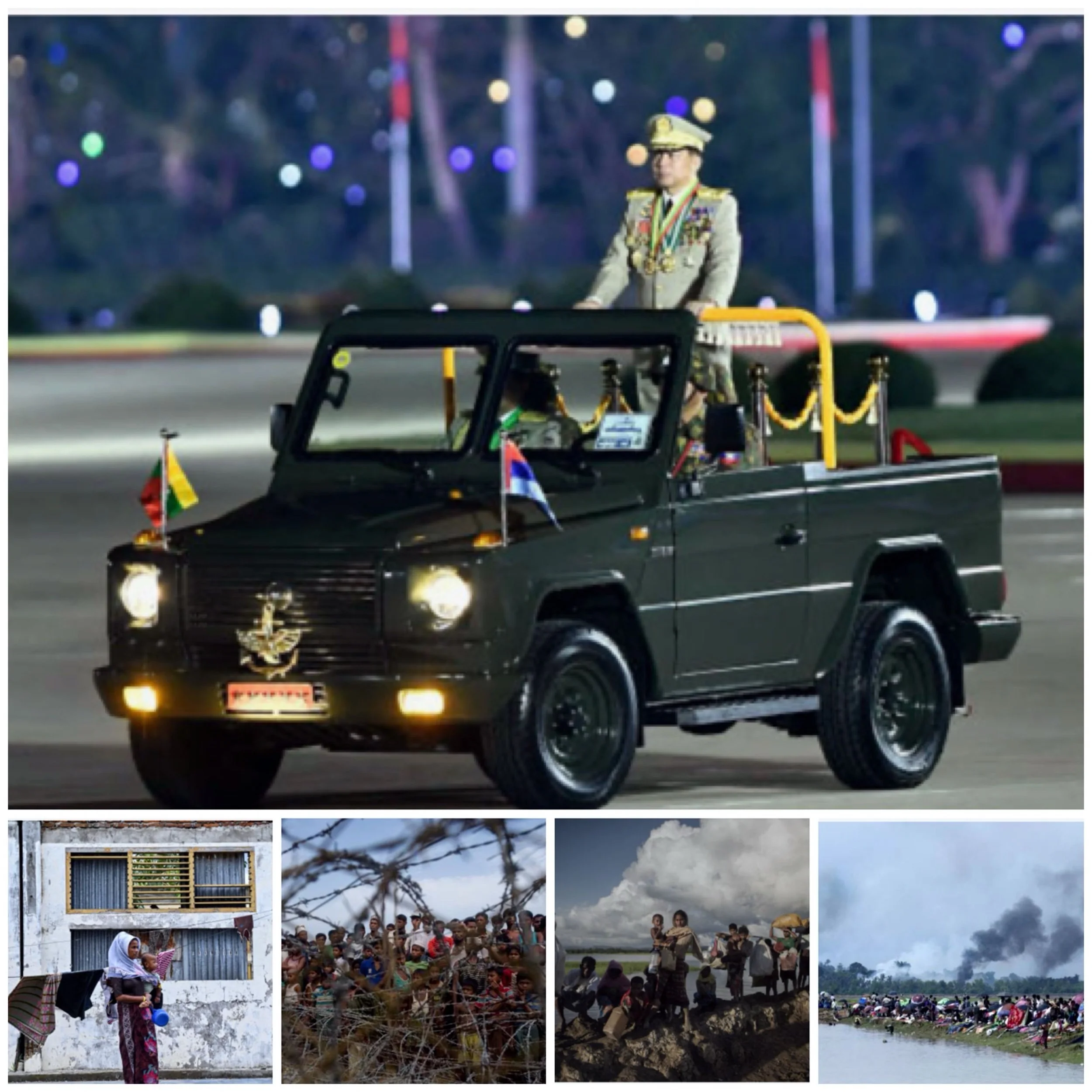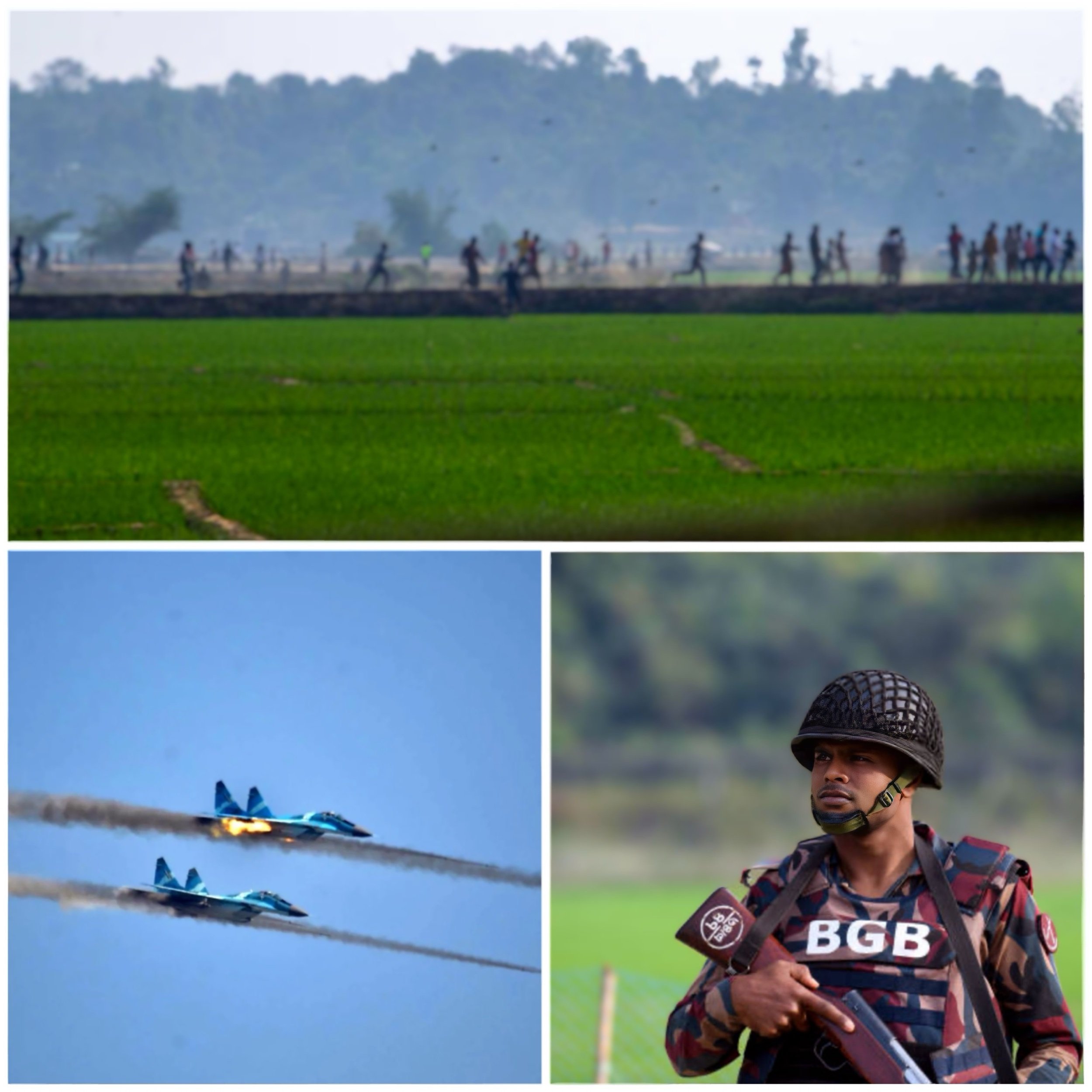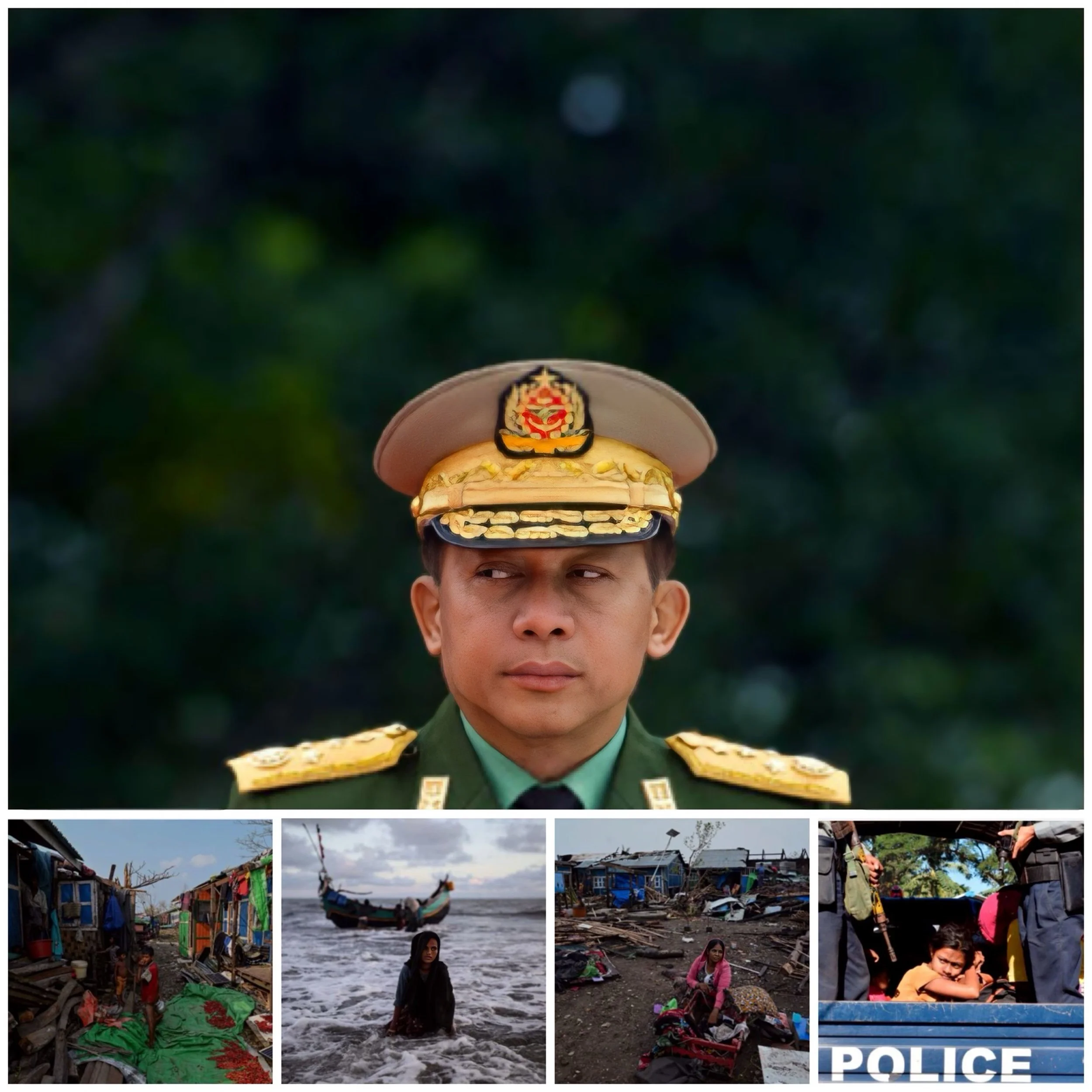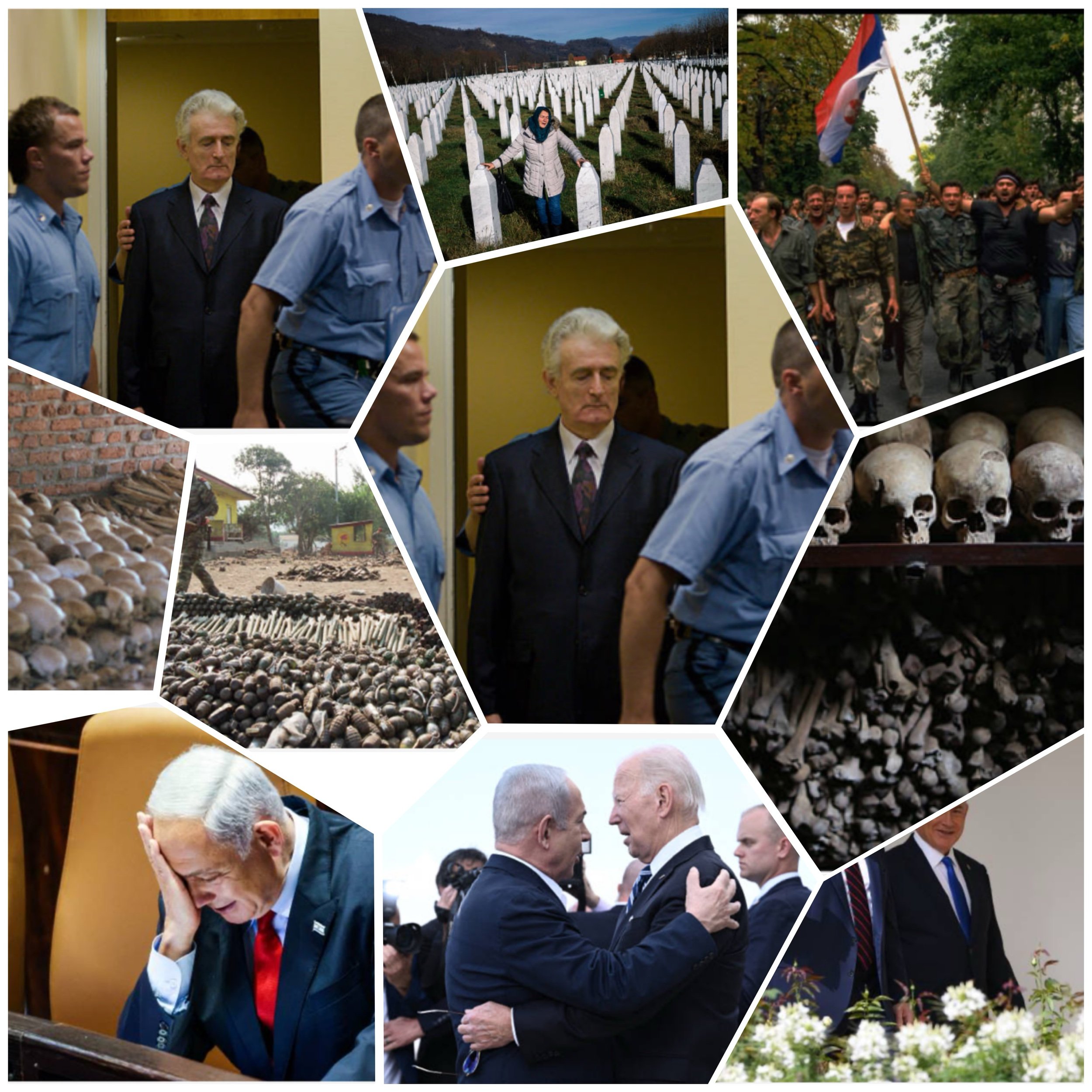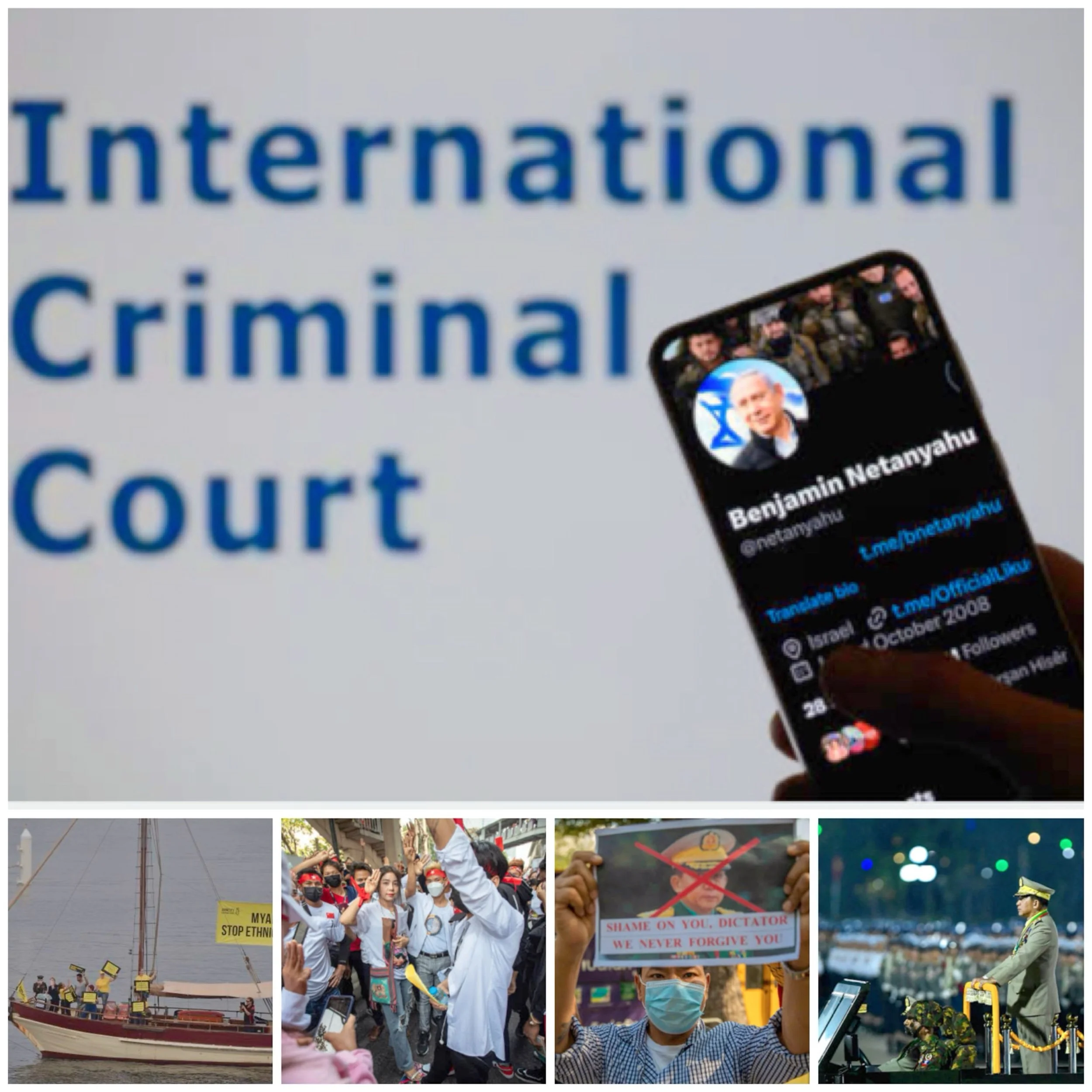What is history of Rohingya minority in Myanmar? War crimes & Genocide ?
Introduction
War crimes ( ICC ) & genocide ( ICJ)
The Rohingya are a Muslim ethnic minority group with a complex and contested history in Myanmar (formerly Burma). Their origins and presence in the region have been the subject of debate and conflict for decades.
Historical Background
The Rohingya trace their origins in the region to several periods:
15th century
Thousands of Muslims arrived in the former Arakan Kingdom (now Rakhine State).
19th-20th centuries
Many others came during British colonial rule when Rakhine was part of British India.
However, there are conflicting narratives about the Rohingya’s history:
Rohingya claim
They are native to Arakan (Rakhine) with roots going back centuries.
Myanmar government claim
Rohingya are illegal immigrants from Bangladesh who arrived during colonial times.
Key Historical Events
1785
Burmese conquest of Arakan led to oppression and flight of many Arakanese, including Muslims.
1799
First recorded use of the term “Rooinga” (Rohingya) by British physician Francis Buchanan-Hamilton.
1948
Myanmar gains independence; government refuses to acknowledge Rohingya as citizens.
1970s
Persecution of Rohingya begins, with mass displacements.
Persecution and Massacres
The Rohingya have faced ongoing persecution, but large-scale violence and massacres intensified in recent years
2012
Sectarian violence in Rakhine State displaces thousands of Rohingya.
2016-2017
Major military crackdowns force over 700,000 Rohingya to flee to Bangladesh.
Reasons for Persecution
Citizenship denial
1982 Myanmar nationality law denies Rohingya citizenship.
Religious and ethnic tensions
Rohingya are Muslim in a majority Buddhist country.
Political factors
Rohingya are seen as outsiders by the government and some ethnic groups.
Nature of Violence
The recent crackdowns have been characterized by:
Mass killings and summary executions
Widespread rape and sexual violence
Burning of Rohingya villages
Forced displacement
International bodies, including the UN, have described these actions as ethnic cleansing and potential genocide.
35,000 have been killed and 3.3 million displaced.
International criminal court
The International Criminal Court (ICC) has not yet issued an arrest warrant for the Rohingya genocide, but significant developments have occurred:
ICC prosecutor Karim Khan has requested an arrest warrant for Myanmar’s military leader, Senior General Min Aung Hlaing, for crimes against humanity related to the persecution and deportation of Rohingya Muslims.
This request, made in November 2024, is the first time an arrest warrant has been sought for a high-ranking Myanmar official in connection with the Rohingya crisis.
The allegations stem from the 2017 military crackdown that forced over 700,000 Rohingya to flee to Bangladesh.
The ICC judges are currently reviewing the prosecutor’s request, and a decision on issuing the arrest warrant is pending. There is no set timeline for this decision.
This action by the ICC prosecutor is seen as a significant step towards accountability, although it focuses on crimes against humanity rather than genocide specifically.
A separate case alleging genocide against the Rohingya is ongoing at the International Court of Justice (ICJ), which is distinct from the ICC proceedings.
It’s important to note that while the arrest warrant has been requested, it has not yet been issued. The ICC’s actions are part of a broader effort to address the atrocities committed against the Rohingya, but the specific charge of genocide is being handled in a different legal forum.
Around 35,000 Rohingya have been killed and 3.3 million displaced due to Military and local Rahine population.
Other related actions by ICC
Based on the recent developments in the ICC’s investigation into crimes against the Rohingya, several other Myanmar leaders may potentially face arrest warrants:
Other military officials
ICC Prosecutor Karim Khan indicated that the request for an arrest warrant against Senior General Min Aung Hlaing is “the first request by his office for a warrant against a senior Myanmar official, but ‘more will follow’”.
National police leaders
The ICC investigation covers crimes allegedly committed by “the armed forces of Myanmar, the Tatmadaw, supported by the national police, the border guard police, as well as non-Rohingya civilians”.
Border Guard Police commanders
As mentioned above, the Border Guard Police are also implicated in the alleged crimes.
Civilian leaders involved in the crackdown
Non-Rohingya civilians who participated in the alleged crimes may also be subject to investigation.
While specific names have not been mentioned, the ICC prosecutor’s statement suggests that additional applications for arrest warrants are likely to target other high-ranking officials involved in the 2016-2017 crackdown against the Rohingya.
The investigation’s scope covers the period from August to December 2017, focusing on the crimes against humanity of deportation and persecution.
It’s important to note that the ICC’s jurisdiction in this case is limited to crimes that partially occurred in Bangladesh, an ICC member state. However, there are calls for the UN Security Council to expand the ICC’s jurisdiction to cover the full scope of crimes committed in Myanmar, which could potentially implicate additional leaders.
Conclusion
Rohingya have a long history in Myanmar, their status and rights have been increasingly challenged since the country’s independence. The persecution has roots in colonial-era demographics and post-independence politics, but has escalated dramatically in the 21st century, leading to what many consider a genocide.

